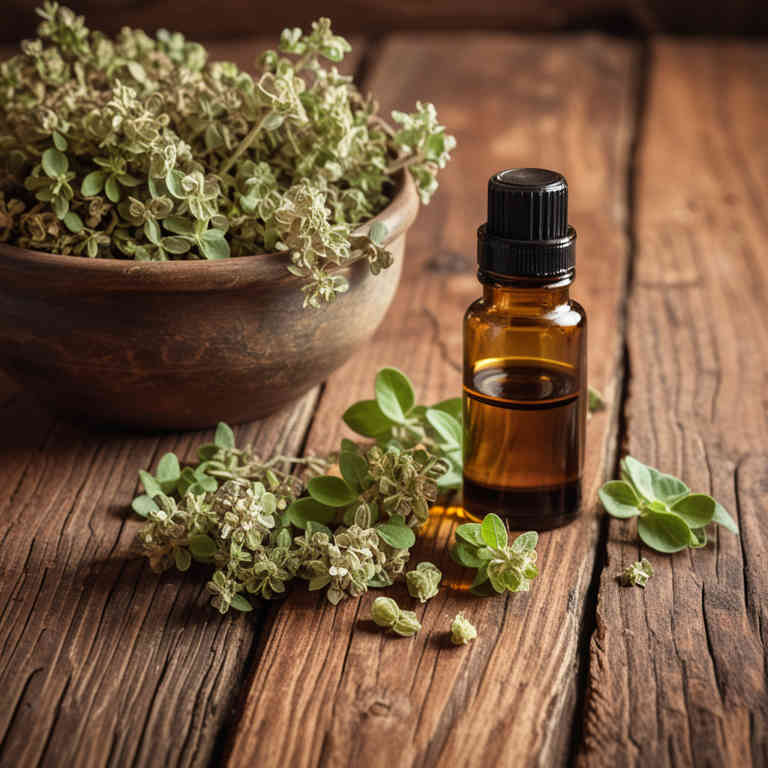Origanum vulgare essential oil for medicinal use

Origanum vulgare essential oil is a concentrated aromatic extract derived from the flowering plant oregano, known for its strong, peppery scent and therapeutic properties.
It is commonly used in herbalism for its antimicrobial, anti-inflammatory, and digestive benefits. This essential oil is often applied topically to relieve muscle pain, reduce inflammation, and support respiratory health. It can also be diffused to purify the air and promote mental clarity.
In traditional medicine, it has been valued for its ability to aid digestion and alleviate symptoms of gastrointestinal discomfort.
Uses
Origanum vulgare essential oil has been used to treat a variety of ailments for thousands of years, with its origins tracing back to ancient Greece and Rome, where it was valued for its aromatic and medicinal properties.
Historically, it was used to combat digestive issues, respiratory infections, and as a natural preservative in food and medicine. In traditional herbalism, it was also employed to relieve muscle pain, reduce inflammation, and promote mental clarity. Modern applications include its use in aromatherapy for stress relief, as an antiseptic, and in skincare for its antibacterial properties.
Today, it continues to be a popular essential oil in both alternative and complementary medicine practices.
Benefits
Origanum vulgare essential oil has health benefits such as antimicrobial, anti-inflammatory, and antioxidant properties.
It is commonly used to support respiratory health by helping to relieve symptoms of colds, coughs, and bronchitis. The oil may also aid in digestion by reducing bloating and promoting healthy gut function. Its calming effects can help reduce stress and anxiety, making it useful in aromatherapy.
Additionally, it has been studied for its potential to combat harmful bacteria and fungi, making it a valuable natural remedy.
Constituents
Origanum vulgare essential oil active constituents include carvacrol, thymol, linalool, and geraniol.
These compounds are known for their antimicrobial, anti-inflammatory, and antioxidant properties. Carvacrol and thymol are particularly effective against bacteria and fungi, making the oil useful for treating infections. Linalool contributes to its calming effects, supporting mental well-being.
Geraniol adds to its aromatic profile and may aid in digestion and respiratory health.
Preparation
To make Origanum vulgare essential oil, first gather fresh or dried oregano leaves, ensuring they are clean and free of contaminants.
Next, place the leaves in a glass jar and cover them completely with a high-quality carrier oil, such as olive oil or jojoba oil. Allow the mixture to infuse for 4 to 6 weeks in a cool, dark place, shaking the jar gently every few days to promote extraction. After the infusion period, strain the oil through a fine mesh strainer or cheesecloth to remove the plant material.
Finally, store the essential oil in a dark glass bottle in a cool, dry place, away from direct sunlight.
Side Effects
Origanum vulgare essential oil may lead to gastrointestinal discomfort, including nausea, vomiting, and stomach cramps, especially when ingested in high concentrations.
It can also cause skin irritation or allergic reactions when applied topically without proper dilution. Prolonged or excessive use may result in liver toxicity, as some compounds in the oil are hepatotoxic. Individuals with asthma or respiratory conditions should use it cautiously, as it may trigger breathing difficulties.
It is important to consult a healthcare professional before using this essential oil, particularly during pregnancy or while taking medications.